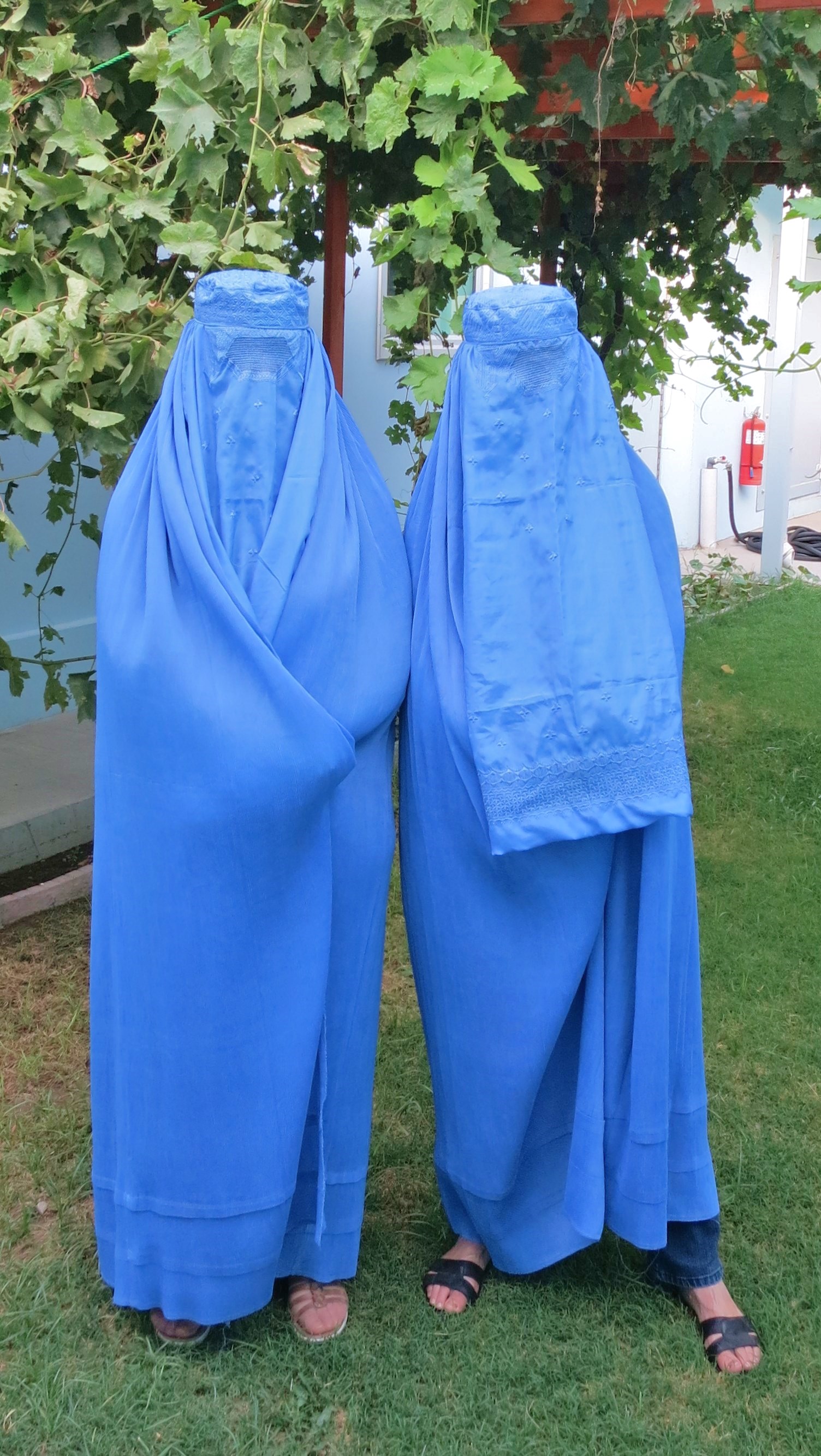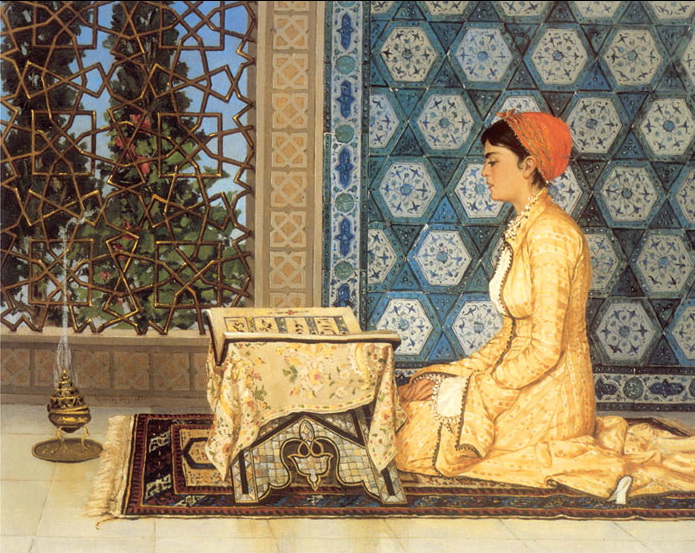|
Golden Needle
The Golden Needle Sewing School was an underground school for women in Herat, Afghanistan, during the rule of the Taliban. Because women were not allowed to be educated under the strict interpretation of Islamic law introduced by the Taliban,"The Taliban's War on Women" , Physicians for Human Rights, August 1998, accessed 29 July 2010. women writers belonging to the Herat Literary Circle set up a group called the Sewing Circles of Herat, which founded the Golden Needle Sewing School in or around 1996.Synovitz, Ron ''Radio Free Europe'', March 31, 2004, accessed 29 J ... [...More Info...] [...Related Items...] OR: [Wikipedia] [Google] [Baidu] |
Burqa Afghanistan 01
A burqa or a burka, or , and ur, , it is also transliterated as burkha, bourkha, burqua or burqu' or borgha' and is pronounced natively . It is generally pronounced in the local variety of Arabic or variety of Persian, which varies. Examples: , plural: , in Literary Arabic by Egyptians: , plural: . ( ar, برقع ) is an enveloping outer garment worn by women which fully covers the body and the face in some Islamic traditions. Also known as a chadaree ( ps, چادري) or chaadar (Urdu, fa, چادر) in Pakistan, Afghanistan and Iran, or a ''paranja'' (russian: паранджа́; tt-Cyrl, пәрәнҗә) in Central Asia, the Arab version of the burqa is called the '' boshiya'' and is usually black. The term ''burqa'' is sometimes conflated with the ''niqāb'' even though, in more precise usage, the niqab is a face veil that leaves the eyes uncovered, while a burqa covers the entire body from the top of the head to the ground, with a mesh screen which only allows the ... [...More Info...] [...Related Items...] OR: [Wikipedia] [Google] [Baidu] |
Islamic Feminism
Islamic feminism is a form of feminism concerned with the role of women in Islam. It aims for the full equality of all Muslims, regardless of gender, in public and private life. Islamic feminists advocate women's rights, gender equality, and social justice grounded in an Islamic framework. Although rooted in Islam, the movement's pioneers have also utilized secular, Western, or otherwise non-Muslim feminist discourses, and have recognized the role of Islamic feminism as part of an integrated global feminist movement. Advocates of the movement seek to highlight the teachings of equality in the religion, and encourage a questioning of patriarchal interpretations of Islam by reinterpreting the Quran and hadith. Prominent thinkers include Amina Wadud, Leila Ahmed, Fatema Mernissi, Azizah Y. al-Hibri, Azizah al-Hibri, Riffat Hassan, Asma Lamrabet, and Asma Barlas. Definition and background Islamic feminists Since the mid-nineteenth century, Muslim women and men have been critical ... [...More Info...] [...Related Items...] OR: [Wikipedia] [Google] [Baidu] |
History Of Women In Afghanistan
History (derived ) is the systematic study and the documentation of the human activity. The time period of event before the invention of writing systems is considered prehistory. "History" is an umbrella term comprising past events as well as the memory, discovery, collection, organization, presentation, and interpretation of these events. Historians seek knowledge of the past using historical sources such as written documents, oral accounts, art and material artifacts, and ecological markers. History is not complete and still has debatable mysteries. History is also an academic discipline which uses narrative to describe, examine, question, and analyze past events, and investigate their patterns of cause and effect. Historians often debate which narrative best explains an event, as well as the significance of different causes and effects. Historians also debate the nature of history as an end in itself, as well as its usefulness to give perspective on the problems of the ... [...More Info...] [...Related Items...] OR: [Wikipedia] [Google] [Baidu] |
Women's Rights In Afghanistan
Women's rights in Afghanistan have oscillated back and forth depending on the time period. After King Amanullah Khan's attempts to modernize the country in the 1920s, women officially gained equality under the 1964 Constitution. However, these rights were taken away in the 1990s through different temporary rulers such as the mujahideen and the Taliban during the Afghan civil war. During the first Taliban regime (1996–2001), women had very little to no freedom, specifically in terms of civil liberties. When the Taliban were removed from power following the 9/11 attacks in the United States, women's rights gradually improved under the presidential Islamic Republic of Afghanistan. Women were ''de jure'' equal to men under the 2004 Constitution. After the Taliban takeover of Afghanistan in August 2021, most teenage girls were again prevented from returning to secondary school education, and women were blocked from working in most sectors outside of health and education ... [...More Info...] [...Related Items...] OR: [Wikipedia] [Google] [Baidu] |
Women's Rights In Islam
Islamic feminism is a form of feminism concerned with the role of women in Islam. It aims for the full equality of all Muslims, regardless of gender, in public and private life. Islamic feminists advocate women's rights, gender equality, and social justice grounded in an Islamic framework. Although rooted in Islam, the movement's pioneers have also utilized secular, Western, or otherwise non-Muslim feminist discourses, and have recognized the role of Islamic feminism as part of an integrated global feminist movement. Advocates of the movement seek to highlight the teachings of equality in the religion, and encourage a questioning of patriarchal interpretations of Islam by reinterpreting the Quran and hadith. Prominent thinkers include Amina Wadud, Leila Ahmed, Fatema Mernissi, Azizah al-Hibri, Riffat Hassan, Asma Lamrabet, and Asma Barlas. Definition and background Islamic feminists Since the mid-nineteenth century, Muslim women and men have been critical of restrictions pl ... [...More Info...] [...Related Items...] OR: [Wikipedia] [Google] [Baidu] |
Educational Organisations Based In Afghanistan
Education is a purposeful activity directed at achieving certain aims, such as transmitting knowledge or fostering skills and character traits. These aims may include the development of understanding, rationality, kindness, and honesty. Various researchers emphasize the role of critical thinking in order to distinguish education from indoctrination. Some theorists require that education results in an improvement of the student while others prefer a value-neutral definition of the term. In a slightly different sense, education may also refer, not to the process, but to the product of this process: the mental states and dispositions possessed by educated people. Education originated as the transmission of cultural heritage from one generation to the next. Today, educational goals increasingly encompass new ideas such as the liberation of learners, skills needed for modern society, empathy, and complex vocational skills. Types of education are commonly divided into formal, ... [...More Info...] [...Related Items...] OR: [Wikipedia] [Google] [Baidu] |
Women In Islam
The experiences of Muslim women ( ''Muslimāt'', singular مسلمة ''Muslimah'') vary widely between and within different societies. At the same time, their adherence to Islam is a shared factor that affects their lives to a varying degree and gives them a common identity that may serve to bridge the wide cultural, social, and economic differences between them. Many women are mentioned in the Quran, but only one is named: Mary, who appears more times in the Quran than in the Bible. According to the Quran, divine grace surrounded Mary from birth, and, as a young woman, she received a message from God through the archangel Gabriel that God had chosen her, purified her and preferred her above all "the women of the worlds".Stowasser, Barbara Freyer, "Mary", in: ''Encyclopaedia of the Qurʾān'', General Editor: Jane Dammen McAuliffe, Georgetown University, Washington DC. Among the influences which have played an important role in defining the social, legal, spiritual, and cosm ... [...More Info...] [...Related Items...] OR: [Wikipedia] [Google] [Baidu] |
Taliban Treatment Of Women
During their first rule in Afghanistan (1996–2001), the Taliban were considered notorious internationally for their misogyny and violence against women. Since 1996, women were mandated to wear the burqa at all times in public. In a systematic segregation sometimes referred to as gender apartheid, women were not allowed to work, nor were they allowed to be educated after the age of eight. Women seeking an education were forced to attend underground schools, where they and their teachers risked execution if caught. They were not allowed to be treated by male doctors unless accompanied by a male chaperone, which led to illnesses remaining untreated. They faced public flogging and execution for violations of the Taliban's laws. The Taliban allowed, and in some cases encouraged, marriage for girls under the age of 16. Amnesty International reported that 80% of Afghan marriages were forced. After their takeover of Afghanistan in August 2021, the Taliban at first gender segregated ... [...More Info...] [...Related Items...] OR: [Wikipedia] [Google] [Baidu] |
Sewing Circle
The term sewing circle usually refers to a group of people who meet regularly for the purpose of sewing, often for charitable causes while chatting, gossiping, and/or discussing. Application to sewing Sewing circle participants, usually women, typically meet regularly for the purpose of sewing. They often also support charitable causes while chatting, gossiping, and/or discussing. For example, in ante-bellum America, local anti-slavery or missionary "sewing circles were complementary, not competing, organisations that allowed omento act on their concern for creating a more just and moral society". Other examples of sewing circles include the Fragment Society, the Mennonite Sewing Circle, and those organized by RMS ''Titanic'' survivor Emily Goldsmith aboard the rescue ship RMS ''Carpathia'': Goldsmith, "a talented seamstress, organized sewing circles to make garments out of cloth and blankets for those passengers dressed in nightclothes when they entered the lifeboats." A ... [...More Info...] [...Related Items...] OR: [Wikipedia] [Google] [Baidu] |
Revolutionary Association Of The Women Of Afghanistan
The Revolutionary Association of the Women of Afghanistan (RAWA) (Persian:جمعیت انقلابی زنان افغانستان, ''Jamiʿat-e Enqelābi-ye Zanān-e Afghānestān'', Pashto:د افغانستان د ښڅو انقلابی جمعیت) is a women's organization based in Kabul, Afghanistan, that promotes women's rights and secular democracy. It was founded in 1977 by Meena Keshwar Kamal, an Afghan student activist who was assassinated in February 1987 for her political activities. The group, which supports non-violent strategies, had its initial office in Kabul, Afghanistan, but then moved to Pakistan in the early 1980s. The organization aims to involve women of Afghanistan in both political and social activities aimed at acquiring human rights for women and continuing the struggle against the government of Afghanistan based on democratic and secular, not fundamentalist principles, in which women can participate fully. RAWA also strives for multilateral disarmament. Sin ... [...More Info...] [...Related Items...] OR: [Wikipedia] [Google] [Baidu] |
Fyodor Dostoevsky
Fyodor Mikhailovich Dostoevsky (, ; rus, Фёдор Михайлович Достоевский, Fyódor Mikháylovich Dostoyévskiy, p=ˈfʲɵdər mʲɪˈxajləvʲɪdʑ dəstɐˈjefskʲɪj, a=ru-Dostoevsky.ogg, links=yes; 11 November 18219 February 1881), sometimes transliterated as Dostoyevsky, was a Russian novelist, short story writer, essayist and journalist. Dostoevsky's literary works explore the human condition in the troubled political, social, and spiritual atmospheres of 19th-century Russia, and engage with a variety of philosophical and religious themes. His most acclaimed novels include ''Crime and Punishment'' (1866), ''The Idiot'' (1869), ''Demons'' (1872), and ''The Brothers Karamazov'' (1880). His 1864 novella, ''Notes from Underground'', is considered to be one of the first works of existentialist literature. Numerous literary critics regard him as one of the greatest novelists in all of world literature, as many of his works are considered highly influen ... [...More Info...] [...Related Items...] OR: [Wikipedia] [Google] [Baidu] |


.jpg)





_-_WGA4672.jpg)

